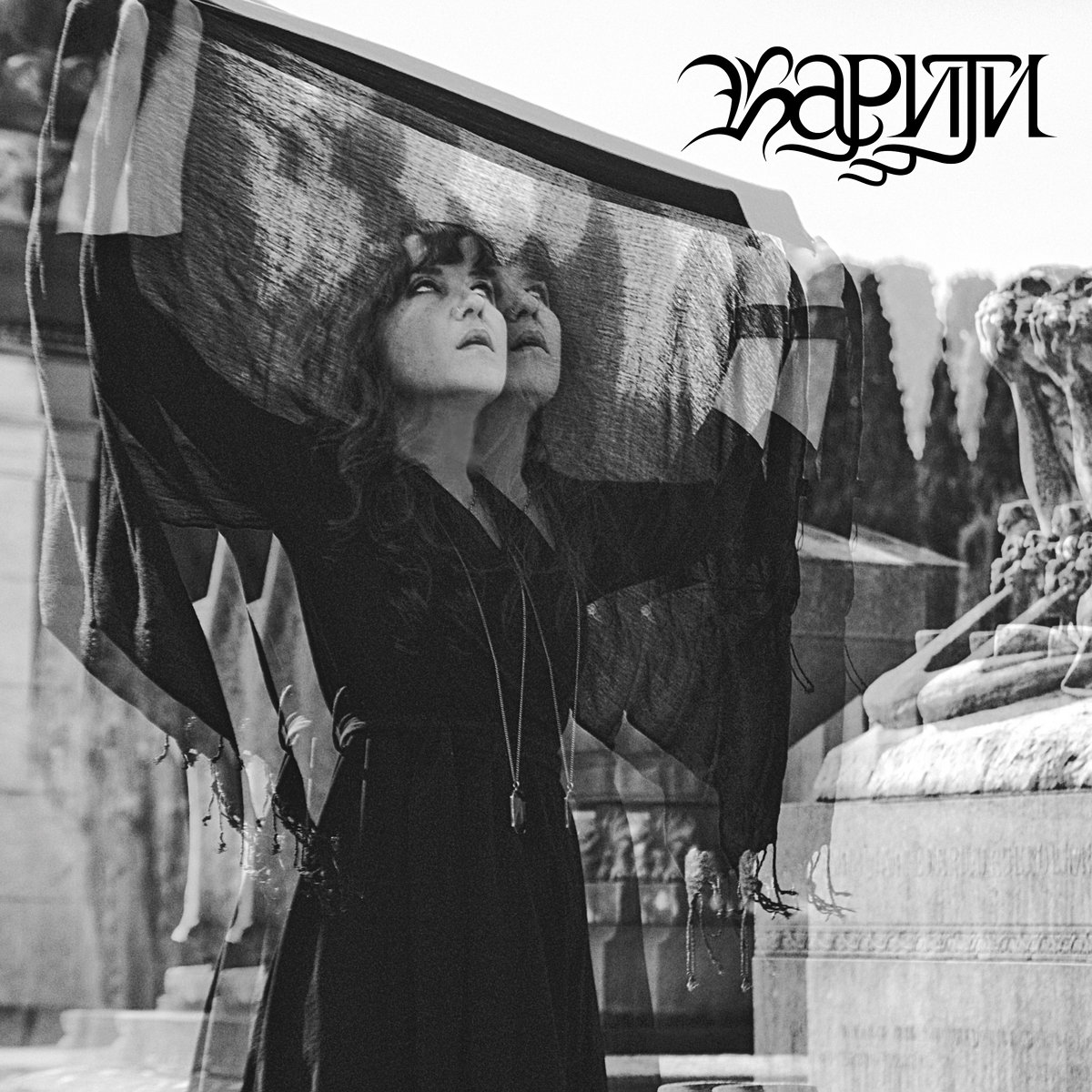Interview with CHAOS ECHŒS (Esoteric and Arcane)
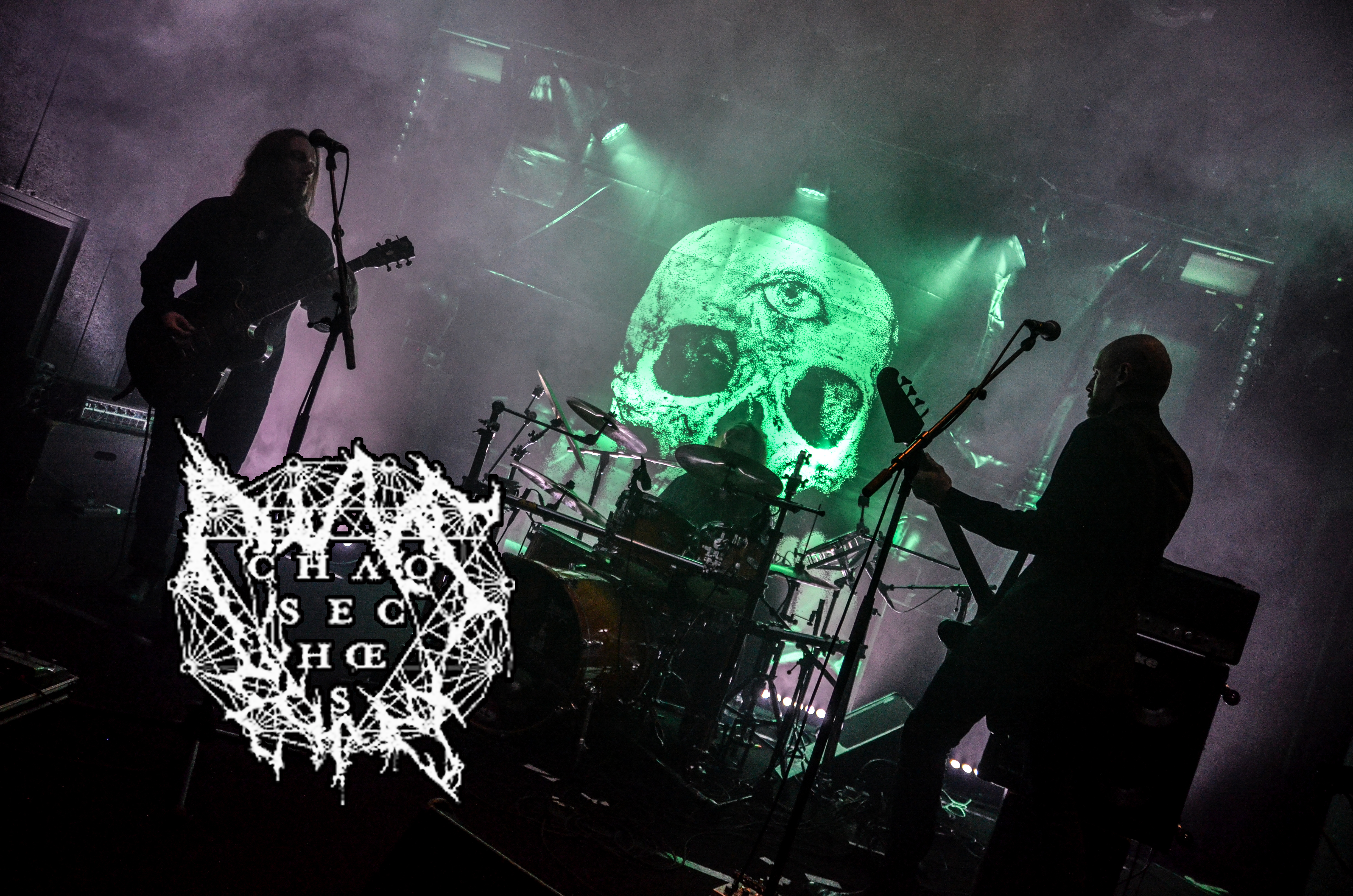
In our selection of only the finest, most bizarre, and most darkened of music, we sometimes find it pertinent to interview what we consider the best. Those of the underground sometimes rejected by the vpper crvst for being so against the grain their skin is rubbed raw to the underlayer. A fine film of blood forms over their extremities, trickling down their arms, when extended, like a cloak, spreading upon the stage of the Grand Guignol only the few are fortunate enough to comprehend. Out of any of these bands, one of our favorites from the past year was the esoteric CHAOS ECHŒS, which to be simple was unlike most of what we receive. In fact, well, it’s best to say it was simply its own niche. Our review spread around, somehow, but in case you didn’t get to check it out, scan through it quickly before you move onward into the mind of Stefan Thanneur, who was kind enough to speak to us via email, providing details on the band and their work. Seriously, you should probably read that review before you continue. Pictures from this interview were utilized from Chuul Webzine.
Deaf Sparrow – This is the usual opener, but in this case I feel it’s particularly pertinent, considering how much you break with tradition as a band. So where did music start for you? Classically trained in something maybe? We often find musicians of this caliber have rather typical roots, and perhaps it was that disgust for the typical that led them to where they are. Thoughts?
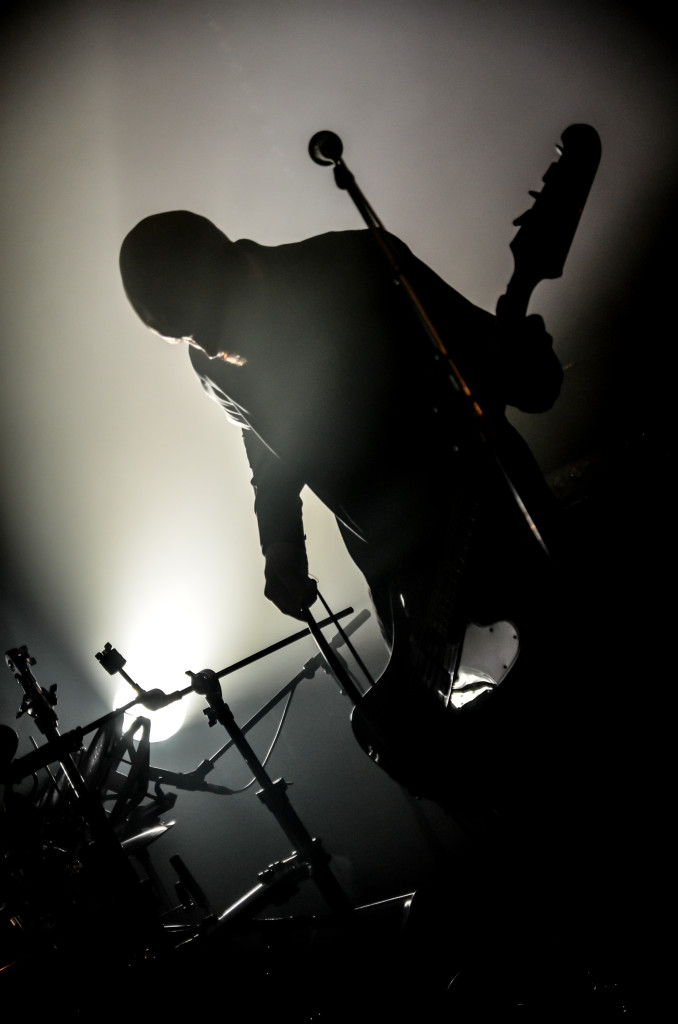 CHAOS ECHŒS – I’m maybe not the best member to answer this question because I’m the only one in the band who is self-taught. I can’t speak for the others, but I only know that Kalevi and Ilmar decided very early they wanted to be musicians. So they studied music, and Kalevi even went to a jazz school. I’ve never studied music, except a couple of lessons with a very talented bass player who quickly suggested me to find a band to play with. So I had a few experiences with other musicians, but nothing really serious. Just to spend some time in rehearsal rooms and jam, without other ambitions than having a good time. I can say that I’ve done my first steps in a recording studio and on stage with Chaos Echœs. It is my first real band.
CHAOS ECHŒS – I’m maybe not the best member to answer this question because I’m the only one in the band who is self-taught. I can’t speak for the others, but I only know that Kalevi and Ilmar decided very early they wanted to be musicians. So they studied music, and Kalevi even went to a jazz school. I’ve never studied music, except a couple of lessons with a very talented bass player who quickly suggested me to find a band to play with. So I had a few experiences with other musicians, but nothing really serious. Just to spend some time in rehearsal rooms and jam, without other ambitions than having a good time. I can say that I’ve done my first steps in a recording studio and on stage with Chaos Echœs. It is my first real band.
I was into hard rock/heavy music at a very early age, when I was around 10. I loved it so much I knew I wanted to play that music. But my family wasn’t into music at all, and they told me to first learn music in the typical/traditional way when I only wanted to plug a guitar and play loud and heavy. As I was more confident in my drawing skills than in my musician abilities, I kind of decided by myself that I would be too lazy or dumb to learn music theory. That’s basically why I’ve never studied music. But a few years later, when I had enough money to buy a guitar and a decent amp, I began to play and learned by myself, for my own pleasure. Thus, it is maybe more easy for me to break with traditions and rules because I’ve never learned any of them!
DS – Ha, yeah that’s an interesting thought. Anti-tradition from birth, perhaps. Now about band experience, what kind of roots in bands do the other members have? I’m aware that Chaos Echoes formed out of another band, Bloody Sign, but how about before that? Any other inklings of experience in playing in bands before?
CE – Bloody Sign has been Ilmar and Kalevi’s band for something like 10 or 15 years. They also formed a medieval ensemble, and they play or played in many other formations, mainly jazz oriented. Fabien, who’s replaced our former guitar player Etienne a year ago, has his own band Wheelfall. He plays bass in Phazm, and also has a more electronica oriented solo project.
DS – What is the origin of the band name itself?
CE – It comes from Kalevi’s mind, and it is Bloody Sign’s last album title. It has a strong mystical meaning and reflects our idea/philosophy about the art of music, about the connection between sounds and mankind, since the early ages of man and of his reflection about his condition, about his role on this earth, and the afterworld.
The first sound is chaos. And freedom and creativity come from chaos.
DS – What caused the end of Bloody Sign and how did it lead into Chaos Echœs? How did you all get together?
CE – The departure of their bassist and singer Hagen led to the end of the Bloody Sign adventure. I think that Kalevi and Ilmar have felt that this was the right time to do something in the same vein, but with a complete different philosophy. They incorporated different and odd sounds to their black/death metal on the last Bloody Sign album, and they wanted to go further and make these experiments the core, the identity of their new band. Etienne and I were already good friends of the brothers for many years, so they naturally thought to both of us to complete the lineup.
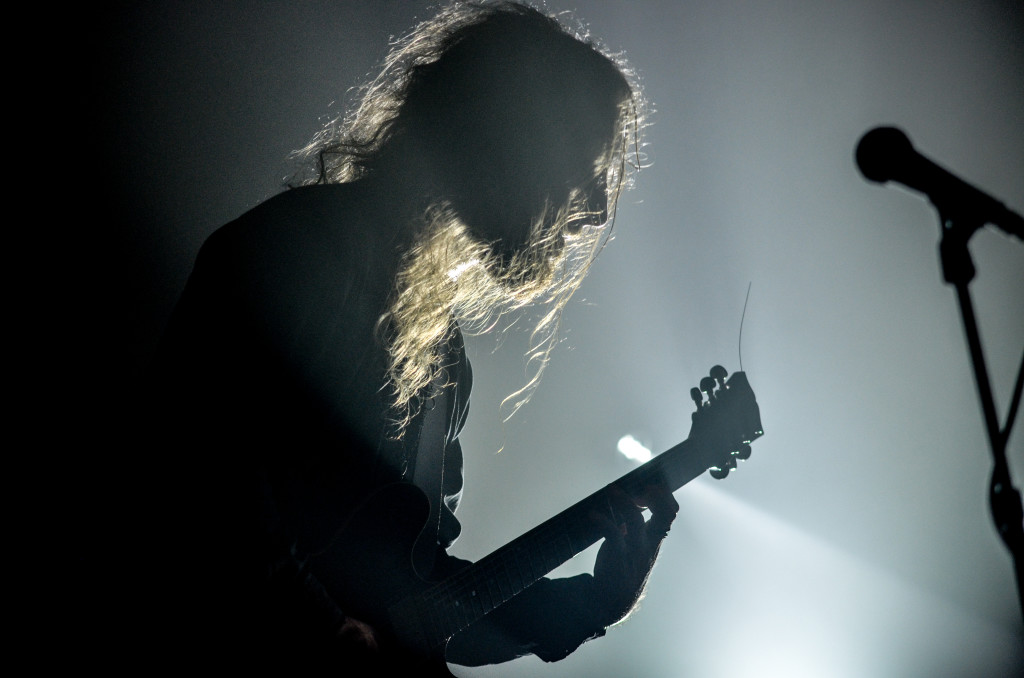 DS – Well, it’s clear from your first release your intentions were much different than what we usually see these days. I assume a completely intentional direction was taken there, but how did that process begin? It’s not so easy to simply sit down and say “we’re going to make something so unique no one is going to be able to understand it by comparing it to anything else.” How did construction of your music take place?
DS – Well, it’s clear from your first release your intentions were much different than what we usually see these days. I assume a completely intentional direction was taken there, but how did that process begin? It’s not so easy to simply sit down and say “we’re going to make something so unique no one is going to be able to understand it by comparing it to anything else.” How did construction of your music take place?
CE – The intent was very clear from the beginning. Way before putting Chaos Echœs into shape, we’ve already talked together with Kalevi about ideas around the music I wanted to play at the time I was thinking of founding my own project, and I was already sure that, with the vision and the music tastes that we shared together, collaborating on something dark, heavy but yet experimental with him and his brother would bring something interesting. So when he talked about his idea behind Chaos Echœs and the music he wanted to play, he knew I would be more than interested. We are all huge metalheads, but we also share the love of those 60s and 70s rock, acid, funk, jazz or fusion bands that created their music through their own vision and their own rules. And we all wanted to bring that kind of philosophy, to see if this freedom of the art can work on the death/black metal field. So yes, we wanted to create something original and unique from the very beginning, but it was not our goal, in the sense that we did not want to be different for the sake of being different. It is primarily a way for us to put aside all formulas previously known to compose this kind of music, and go into the unknown by taking different paths, by forcing ourselves to create from the versatile material that is improvisation, for instance.
DS – Awesome, totally get it. One thing also to note, though perhaps minor to some people, is your music is also highly visual. Personally I think it’s important these days for any band to have a clear conception of what it is as a band, and to figure out how to put that into the art or general aesthetic. Now, from what you said outside of this interview I’m aware you completely control the artwork for the band, but where do you get your ideas? How did you decide to create these images originally?
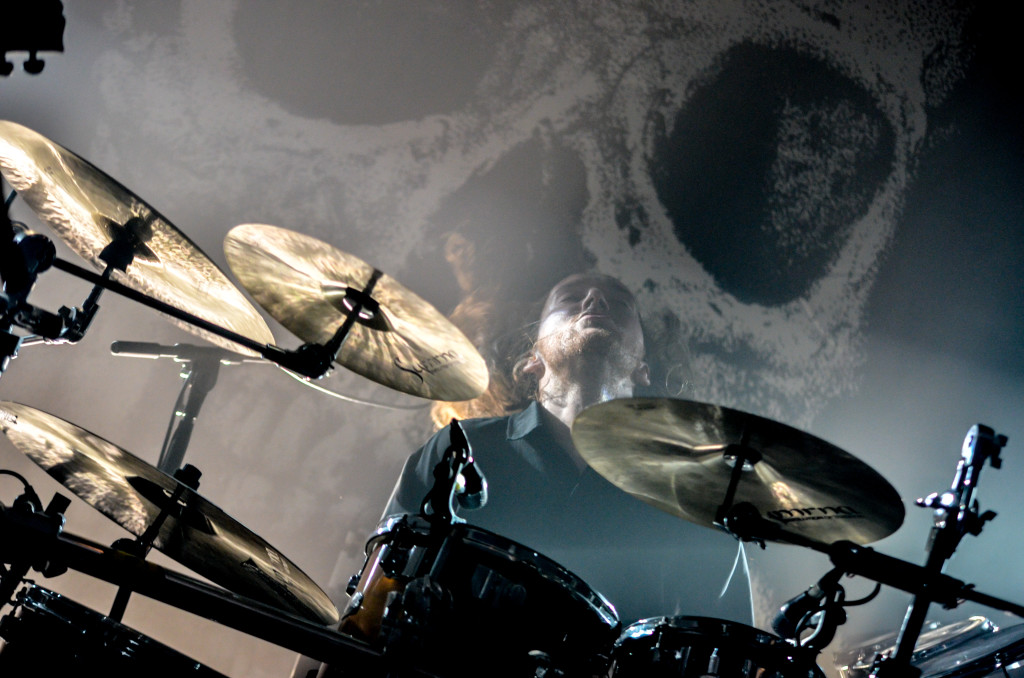 CE – It’s a kind of conversation, a dialogue between sound and vision. Sometimes the visual influences the music, or, at least, gives it a direction, a color, a feeling ; and sometimes the purpose of the music decrees the visual theme. In our band, imagery is almost as important as the music, and visuals can even take part and have a role in the creative process. When we were working on our debut full length, I created some visuals to help us all to feel the ambiance of the tracks via light, matter and colors. And these sketches have later been reworked and have eventually became visuals illustrating each track in the booklet. Our artwork is part of the creative process, not something we do at the very end, in a decorative purpose.
CE – It’s a kind of conversation, a dialogue between sound and vision. Sometimes the visual influences the music, or, at least, gives it a direction, a color, a feeling ; and sometimes the purpose of the music decrees the visual theme. In our band, imagery is almost as important as the music, and visuals can even take part and have a role in the creative process. When we were working on our debut full length, I created some visuals to help us all to feel the ambiance of the tracks via light, matter and colors. And these sketches have later been reworked and have eventually became visuals illustrating each track in the booklet. Our artwork is part of the creative process, not something we do at the very end, in a decorative purpose.
What is great with this band is that my personal work, as a visual artist, is not different from something I would work on for Chaos Echœs. I think that what moves me is the same kind of things that moves the band as a whole. Most of the time, I work on black and white drawings, sometimes symbolics but mainly abstracts, extremely detailed (almost to a fault) that offer different sensations and interpretations depending on whether the viewer is more or less close to the piece. And with our latest recording, Transient, I feel the same connection when I listen to the music. It is very abstract, with a large amount of strata of guitars, and it is like a journey that evolves with the mood of the listener.
DS – That’s probably one of the most self-aware responses I’ve received in terms of explaining music and how it relates to the listener. I think if one considers music these days as a tripartite construction it has much more value. And what I mean is the music, of course, as well as the art, but then you have the lyrics. What can you tell me about thematic approaches to your songs? What do you intend to create for the listener or what does it mean to you?
CE – Unlike our first EP, Tone of Things to Come, you have all the lyrics printed in the booklet of Transient. Thus everybody can have an idea of our thematic approach. Like our music and visuals, our work on lyrics allows people to have their own interpretation. It is abstract, metaphorical, but the power of words offers us to be more introspective. It deals with feelings and elements, with time. It questions on the sense and the meaning of life and death, on what is written and what is free will, on what you want to be and what you are, etc.
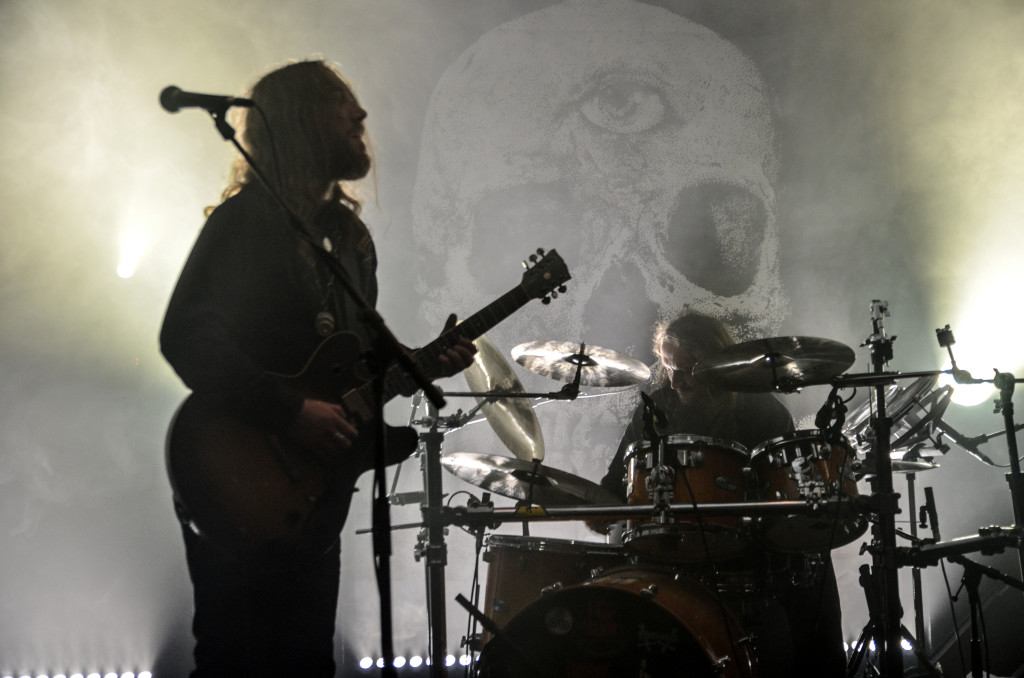 DS –
DS –
CE – In the metal community, which – even though things are changing slowly – remains very conservative, and where repetition and improvisation are rather poorly accepted, we are most often perceived as a somewhat elitist band, odd and “arty”. As for the uninitiated to metal music, we’re too metal to their liking. So overall, in this era of norms and standards, with a perpetual need for references and labels, we stick with nothing. And this seems to be a problem for many people who apparently need to be guided. It saddens me personally, because I find it very difficult to understand this fear and rejection for singular things. On the contrary, this is what moves me. But the media reaction when Transient got released has been excellent, and we were very surprised and excited that our music and our approach were both understood and accepted so well.
DS – So what has the response been like for live performances, then? Do you incorporate any cool visuals into the background, perhaps with projection, or anything of that nature?
CE – It is very simple and uncluttered. We are simply dressed in black, and, most of the time, we have a simple backdrop with the “3rd Eye” visual that adorns the Tone of Things to Come LP cover. We still need to work on that. We didn’t find any idea or direction that suits us yet. I would sometimes incorporate more theatricality in our performances, but when you look at all those so many black & death metal bands simulating rituals, disguised as evil monks or whatever, I simply don’t want to see Chaos Echœs follow the trend – and I’m quite sure the other guys think the same. We look for something that can make the audience penetrate into our world more easily, but this shouldn’t prevail over the music. Music must remain the main vehicle of emotion.
DS – Well if you do design something, it’s going to be as confrontational as the music itself, I’m sure. Tell us some about future plans for the band, maybe touring, but especially any new material you’re working on.
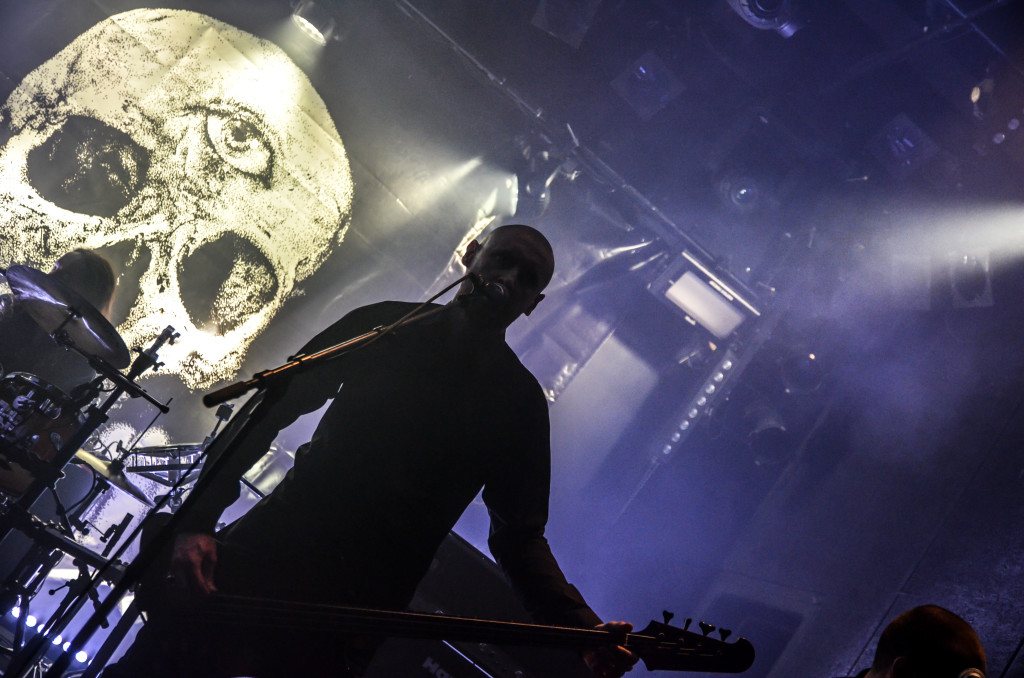 CE – We’ve already started working on new music for the next album which we plan to record next November. Nothing more to add about it for now. We also have a collaboration project with the guys from Bagarre Générale. Not a split release, we actually plan to create music all together. And that ‘s tough, very challenging, because it’s already not so easy to create music within a band, and here we are two different entities, with our own habits for composition. So it takes time to take shape, but that’s a very interesting and exciting exercise. But for us and for now, the next big thing are our two shows at this year’s Roadburn Festival in the Netherlands. We’re very excited about it because we’ll play Transient in its entirety for the first time, with two guest musicians: a third guitar player and a keyboard player. And we’ll also play Tone of Things to Come the next day. So we are all looking forward to be there!
CE – We’ve already started working on new music for the next album which we plan to record next November. Nothing more to add about it for now. We also have a collaboration project with the guys from Bagarre Générale. Not a split release, we actually plan to create music all together. And that ‘s tough, very challenging, because it’s already not so easy to create music within a band, and here we are two different entities, with our own habits for composition. So it takes time to take shape, but that’s a very interesting and exciting exercise. But for us and for now, the next big thing are our two shows at this year’s Roadburn Festival in the Netherlands. We’re very excited about it because we’ll play Transient in its entirety for the first time, with two guest musicians: a third guitar player and a keyboard player. And we’ll also play Tone of Things to Come the next day. So we are all looking forward to be there!
DS – Funny you mentioned that site, they really enjoyed our review of Transient and were promoting it a few months ago. Well, thanks for the great interview, looking forward to more of bond-breaking work in the future. Metal has allowed itself to be shackled for too long.
Interview Conducted by Stanley Stepanic

